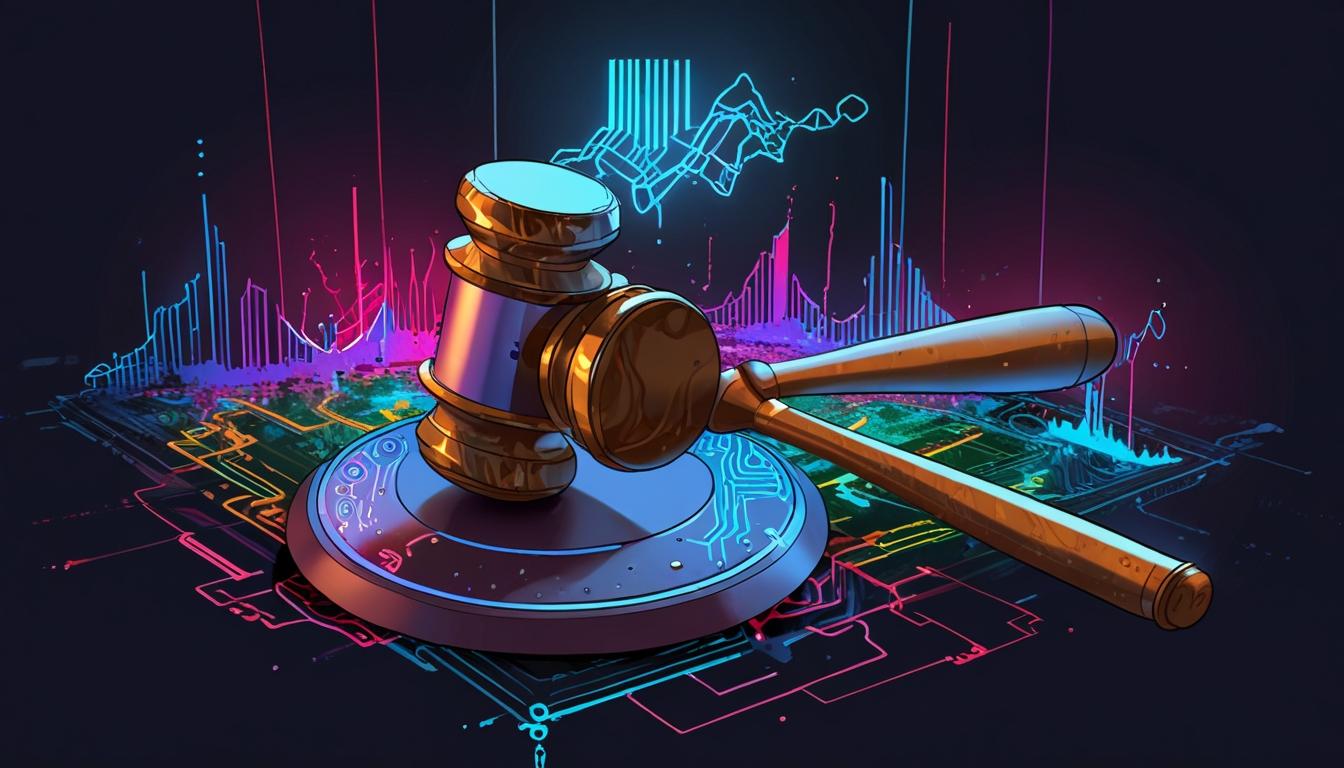Harnessing Technology to Address UK’s Justice System Crisis
In a significant move towards modernising the UK justice system, Justice Secretary Shabana Mahmood is spearheading an initiative that brings together major technology firms to explore the potential of artificial intelligence (AI) and other digital tools in combating challenges such as prison violence and burgeoning re-offending rates. This gathering, featuring companies like Microsoft, Amazon Web Services, and Google, represents a proactive approach to integrating technological solutions into a system beleaguered by inefficiencies and growing workloads.
The backdrop to this meeting is a justice system on the brink. Mahmood has underscored the current state as “a crisis,” with prisons nearing collapse and staff overwhelmed by administrative burdens. According to her, “We need bold ideas to address the challenges we face—supporting our staff, delivering swifter justice for victims, and cutting crime.” Her statement highlights the urgency for innovative solutions that can streamline processes and improve outcomes for offenders through better integration into society.
Among the key topics of discussion is how data can enhance the capacity of probation officers in making risk assessments and tracking offenders in the community, ultimately aiding rehabilitation efforts. These technology-driven enhancements aim to alleviate the current strain on probation services, which have been described as drowning in paperwork. Mahmood’s commitment to integrating technology into the justice sector aligns with recent reviews and proposals aimed at addressing the systemic inefficiencies that plague the courts, police, prosecutors, and prisons.
Additionally, the Ministry of Justice is facing pressure to respond creatively to the critical issue of overcrowding. Alongside investing in new prison facilities, Mahmood has acknowledged that simply building new prisons will not suffice. Proposed alternatives, such as house detention and expanded use of tagging technologies, reflect a shift towards more innovative sentencing measures to manage the increasing prison population, which has nearly doubled over the past three decades.
The effectiveness of AI cannot be underestimated. Ian Rimington, VP and Head of Public Safety and Defence at NTT DATA UK&I, elucidates that while AI holds the potential to improve efficiency in processing criminal cases, it is imperative to recognise the broader systemic challenges. He argues for the adoption of AI not just to reduce delays but also to revolutionise prison management and judicial decision-making by leveraging historical data for informed insights. Ethical considerations around the deployment of such technologies are paramount, given the sensitive nature of criminal justice.
In parallel, a separate review led by Jonathan Fisher KC highlighted the pressing need for standardised AI protocols among UK prosecutors to modernise handling of evidence and case management. This review points out the inadequacies of existing disclosure rules and advocates for an AI-driven framework that could significantly reduce the backlog presented by increasing volumes of digital evidence. There remains a delicate balance to maintain, ensuring that advancements in technology do not compromise the fairness of the justice process.
Moreover, the Conservative Party has expressed scepticism regarding the adequacy of these proposals, with Shadow Justice Minister Kieran Mullan asserting that the government’s plans fall short of what is required to reform the struggling justice system. This sentiment underscores the political challenges intertwined with judicial reform initiatives.
As the government continues to navigate these complexities, the intersection of technology and justice emerges as a critical nexus for future developments. The integration of advanced digital solutions not only promises to bolster operational efficiency but also presents a pivotal opportunity to reshape the justice landscape in the UK. Moving forward, the challenge will be to ensure that these innovations serve to enhance justice, making systems fairer and more effective while safeguarding the rights of all individuals involved.
Reference Map:
- Paragraph 1 – [1], [5]
- Paragraph 2 – [1], [2]
- Paragraph 3 – [3], [4]
- Paragraph 4 – [2], [6]
- Paragraph 5 – [4], [5]
- Paragraph 6 – [5], [7]
Source: Noah Wire Services
